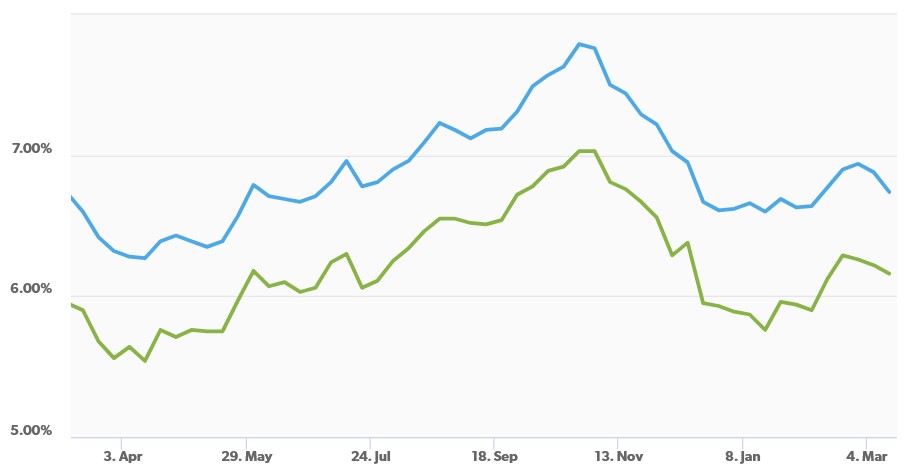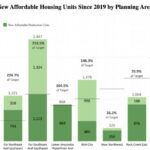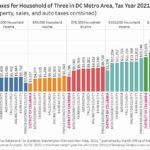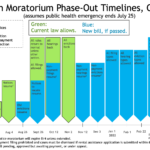Realtor.com, Feb 29, 2024
Homebuyers who are gearing up to shop the spring housing market might wonder whether the mortgage rate gods will smile in their favor.
They’re right to worry: In October, rates hit a 23-year high of 7.79% for a 30-year fixed loan, according to Freddie Mac.
Since then, rates have come down to 6.94% for the week ending Feb. 29. The Realtor.com® 2024 forecast predicts they might dip further to 6.5% by year’s end.
While homebuyers will be happy to hear this, the question remains: What will happen once mortgage rates fall? Does that mean buyers can look forward to lower housing payments? If so, how much lower are we talking about? And what else in the housing market might shift in ways that buyers might not see coming?
To find out, we asked experts what lower mortgage rates could mean for the housing market—in terms of home prices, the number of homes for sale, and beyond. Here’s what homebuyers can expect, and how they can prepare to make the most of this opportunity once lower rates hit.
Mortgage rates will likely decline gradually
Though mortgage rates have fallen since their peak in October 2023, they’re still way above the early 2022 lows of just over 3%.
“According to Freddie Mac, the average 30-year commitment rate is now below 7% for the first time since August 2023,” says Charlie Dougherty, director and senior economist at Wells Fargo. “The drop has occurred largely as a result of encouraging signs that inflation is easing and that the Federal Reserve will be cutting the federal funds target rate sooner rather than later.”
The Fed had been raising rates since early 2022 to bring down inflation. It signaled last year that it would be cutting rates this year in response to cooling inflation. As mortgage rates often move in the same direction as the Fed’s rates, when the Fed lowers its rates, mortgage rates are likely to fall.
But while this downward trend is moving things in the right direction, don’t expect rates to suddenly take a nosedive. This is going to be an incremental process with ups and downs.
“We expect mortgage rates will continue to gradually decline over the course of the next few years alongside easier monetary policy,” says Dougherty. “We look for the average 30-year mortgage rate to fall to 6% by the end of 2024 and 5.75% by the end of 2025.”
What that means is homebuyers shouldn’t expect a radical overnight change.
Homes will become more affordable, but not by much
Homebuyers who have been hanging out in hopes that home prices will also come down along with interest rates shouldn’t expect a miracle, although their situations might improve.
“Lower mortgage rates will improve affordability because they increase buyer purchasing power,” says Danielle Hale, chief economist at Realtor.com. In other words, lower rates mean people can get more home for their money.
In addition, the Realtor.com 2024 forecast predicts that home prices will come down a tad—1.7% over this year. But again, that’s not likely to make a major dent. On the positive side, however, home prices aren’t expected to appreciate massively either.
Homebuyers can expect more competition
Now the bad news: Although lower mortgage rates might make homes more affordable overall, this uptick in consumer purchase power will likely bring more buyers into the market. That has the potential to drive home prices even higher again as buyers compete for a limited number of homes for sale with bidding wars and offers over the asking price.
“Lower financing costs will likely boost demand by pulling affordability-crunched buyers off of the sidelines,” says Wells Fargo’s Dougherty.
In fact, for every 1% drop in mortgage rates, there are 5 million more households that qualify for homeownership, according to Seth Bellas, a Grand Rapids, MI–based branch manager for Churchill Mortgage.
What this means is that not only will more buyers start searching for homes, but many might also resort to offering over the asking price.
“Waived appraisals and shortened inspection timelines are also likely to make a comeback,” says Bryson Taggart, senior agent partnership manager for Opendoor. “The good news for buyers is that their power will increase, and they’ll be able to afford more house—they just might need to work harder for it.”
Homebuyers may have to put in more offers
On that note, if at first you don’t succeed, don’t give up.
“Once you’re up against the competition, don’t get discouraged. It can take multiple offers on a home before getting accepted,” says Taggart. “In 2020, I had a client who put in 16 offers before they were accepted—it was a tough journey, but their persistence landed them the home of their dreams.”
For buyers looking to enter the market, Taggart says his best advice is to set a clear budget and stick to it. Make sure to include closing costs and down payments in those parameters, and be realistic about what you can afford.
Lower rates could help unleash more homes on the market
Anyone who has been looking to buy a home knows that the number of homes on the market has been consistently insufficient. So, in terms of supply, one outcome of lower rates is that it could help expand desperately needed new housing inventory—which has been rising every week for the past few months.
“That noted, roughly 80% of current mortgage holders are carrying a rate below 5%, so the descent in rates may not be enough to bring about a meaningful increase in inventory,” says Dougherty. “Many home sellers are also homebuyers, so stronger demand could place a ceiling on how much supply can improve.”
Pre-approved mortgage applications will start ‘waking up’
The best thing home shoppers can do is get pre-approved for a mortgage early, so that they are in position to act on that perfect house the minute it hits the market.
“Planning ahead and getting one’s buying power firmed up early will give a potential homebuyer a leg up on those that are just thinking of preparing themselves,” says Tan Tunador, a vice president and senior loan officer for Atlantic Coast Mortgage.
“A young couple reached out last week asking what they needed to do to get pre-approved, and when I looked them up, their initial application was October 2021. But when they had applied in 2021, they quickly gave up due to rates and the low inventory,” says Tunador. “Recent positive news about mortgages brought them back into the market, and they were happy that we could use their original application.”
Tunador helped them freshen up their original application with a new credit report and updated income and asset documents. Now they’re ready to go with a new pre-approval letter.
Buyers will trade the stress of high rates for the frustrations of a more challenging market
Once rates start to drop, it’s going to be a trade-off for homebuyers: rates versus competition.
“One of the most basic principles of economics is that when supply is limited and demand is heightened, the price of the goods increases,” says Taggart. “For buyers, we can anticipate increased competition that will drive up the prices of homes and make the homebuying process more stressful and difficult.”
In other words, homebuyers will find themselves essentially trading the frustration of having a higher mortgage rate for the frustration of competing in a more challenging market.
So, while a higher interest rate might be unpalatable, for some people it might still be the right move to buy a home now. That’s because waiting for a time when there is more competition could force potential buyers to consider risky moves like waiving a home inspection, adding an appraisal guarantee, and/or overbidding significantly to win a bid.
They can later refinance their loans, which can cost homeowners anywhere from about 2% to 6% of the amount of their new loan.
Bottom line for homebuyers: If you see a home you love, don’t wait
Given the market’s unpredictable nature, there might be better strategies than waiting for perfect conditions.
“In the face of uncertain predictions, buyers are advised to weigh financial preparedness and personal circumstances,” says Cassandra Happe, an analyst for WalletHub.
She advises homebuyers to consider lower-priced markets, prepare their finances for swift action, and vigilantly monitor listings.
“The key is to act strategically in this evolving market, Happe says. “Buyers should consider locking in deals at potentially lower prices now.”
“With the inventory of homes for sale still relatively low, finding the right home might still be the biggest challenge,” says Hale. “For that reason, if a shopper finds a home that fits their needs and is in budget, then it makes sense to move forward.”
Click here to read the full article







